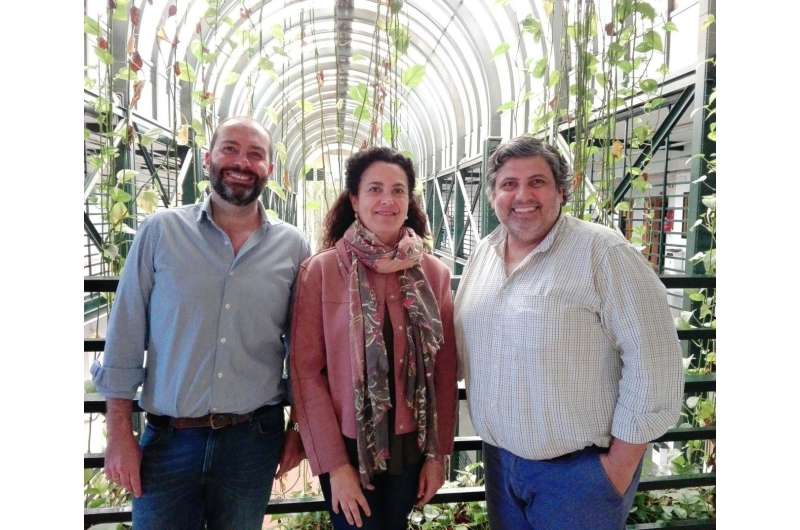Ángel F. Villarejo-Ramos, Begoña Peral-Persal, Jorge Arenas-Gaitán. Credit: University of Seville
Experts from the Economics and Business Institute at the University of Seville have just published a study of the use of online banking by the over-60s, which shows that the digital divide of these users, far from being linked strictly to age, is more connected to psychographic characteristics, such as perceived self-sufficiency, anxiety levels, and the influence of social groups. This is what these same authors have named in other studies the 'psycho-digital' divide. Therefore, the researchers state that the majority of over-60s access online banking when they understand its usefulness, although they assume certain risks because of a lack of competence, and that they also value very positively the influence that they exercise over younger family members, who are more used to using electronic services.
The internet and online services can be a form of social integration for the over-60s and a way to achieve a higher level of active ageing, provided that the design of these services can overcome certain psychological barriers and the older user has the support of younger members of their family who have more digital skills. Online services can, in this way, be a way of achieving a greater level of comfort, independence and inclusion in the digital environment, all of which helps active ageing in this section of the population.
A total of 396 over-60s took part in this project. Information was obtained using a self-completed questionnaire completed in the presence of the researchers. This questionnaire was first submitted to a focus group for pre-testing.
"The most recent users of online banking are those for whom Information Technology forms no part of their daily routine or who don't feel comfortable using it. This means that they feel more insecure and that they choose to continue going to branches of the banks where they can receive the support of the staff there," says the University of Seville teacher Ángel F. Villarejo-Ramos.
Despite the fact that the over-60s are an important segment of this market due to their ever-increasing numbers (because of increased life expectancy) and to their greater spending power, in many cases banks have not done enough to encourage their acceptance and use of online banking, by helping them overcome the difficulties that doing so can pose for older customers. As on other occasions, it is the clients themselves, through their own behaviour, as shown in the research in this area, who have expressed their level of acceptance and use in the face of this technological innovation.
"The banks should show that their online services are useful in daily life and communicate this fact by means of, for example, explanatory leaflets, advertisements, adapted applications and favouring user recommendations. The design of a friendly and accessible interface for their online banking platform would have the result of people trying the service; some over-60s using the service would give them an experience they could share with others; and with a usable, interactive design, it would be easy to learn to use online banking, helping to create favourable conditions that for the over-60s the positive aspects of online banking outweigh its drawbacks," adds Villarejo.
More information: Ángel F. Villarejo-Ramos et al, El uso de los servicios online por los mayores: análisis de la banca por Internet / Usage of online services by elderly people: an analysis of internet banking, Aula Abierta (2018). DOI: 10.17811/rifie.47.1.2018.97-106
Provided by University of Seville





















